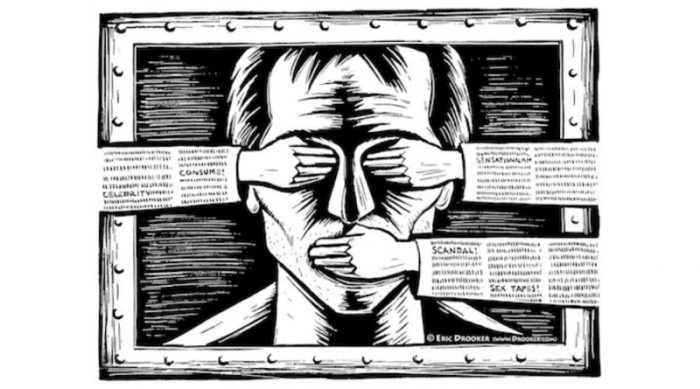According to the latest poll by the Allensbach Demoskopie Institute, a remarkably large number of Germans complain about strong social control and the fact that they try to dictate to them in detail how they should behave, and many feel that they cannot defend themselves against this.
However, the pressure does not come from the majority, but from a minority.
The Institute's public opinion polls have been showing for some time that citizens' sense of freedom is showing a decreasing trend. From the 1960s until the last decade, two-thirds of those surveyed said that they could express their opinions freely, but since then there has been a dramatic change in the answers: in June 2021, only 45% said that they could express their opinions freely, 44% practically contradicted this. All of this is also related to political correctness.
It can be assumed that those who complain that they cannot freely express their opinion know very well that there is no law that forbids them to do so, the complaint is rather directed against the social sanctions that threaten if someone violates "political correctness ” rules.
Participants were also asked what was considered a "sensitive topic" that could easily burn you. In 1996, 15% of those polled said that the topic of Muslims and Islam was considered sensitive - today 59% see it this way.
25 years ago, 16% claimed that patriotism and patriotism are sensitive topics - today 38%. An increase from 3% to 19% can be recorded for the topic of emancipation and women's equality.
According to the poll, the example of the use of gender-appropriate language best illustrates how the pressure to comment on certain topics in public only with certain words goes against the ideas of most citizens. The answer given by the respondents to the question whether in personal conversations one should always be careful not to discriminate or hurt anyone with his statements was clear - so one should always use the masculine and feminine gender forms. 71% of the participants found the use of such language excessive, 19% said it was correct - mostly regardless of age, gender and political orientation. The example is not unique: just last year, the Institute inquired about
whether it is still possible to order a "gypsy steak" today, or to call meringue "niggers" - the vast majority answered yes. The participants were also asked about the "cancel culture" phenomenon: however, only 24% of the respondents had heard of it, and only 11% could say what it meant exactly.
The Institute points out: it is an interesting question how the inequality arises between citizens' speech and behavior norms, and the perception of what is socially tolerable and what is not. Those who order gypsy steak in a personal circle or who do not use the "gender star" indicating both male and female gender, will hardly be offended by their peers. So the question is, where does the impression come from that this cannot be done - and this can only be explained by the role of the media in this process. Without it, such public pressure against the attitude of the majority would not be possible. In light of this, there are many factors that suggest that intellectual debates on such topics have become partly independent of people's real everyday lives. However, this creates a conflict situation for society, which is problematic for the media involved, as credibility is at risk.
At the same time, there is no limit to people's willingness to let themselves be guided by language - 55% of those surveyed agreed with the statement that they deliberately refuse to adapt their language to be politically correct.
Only those who voted for the Greens were divided. On the other hand, those who try to set rules that the majority refuse to follow will ultimately be powerless.
Source: Origo.hu












